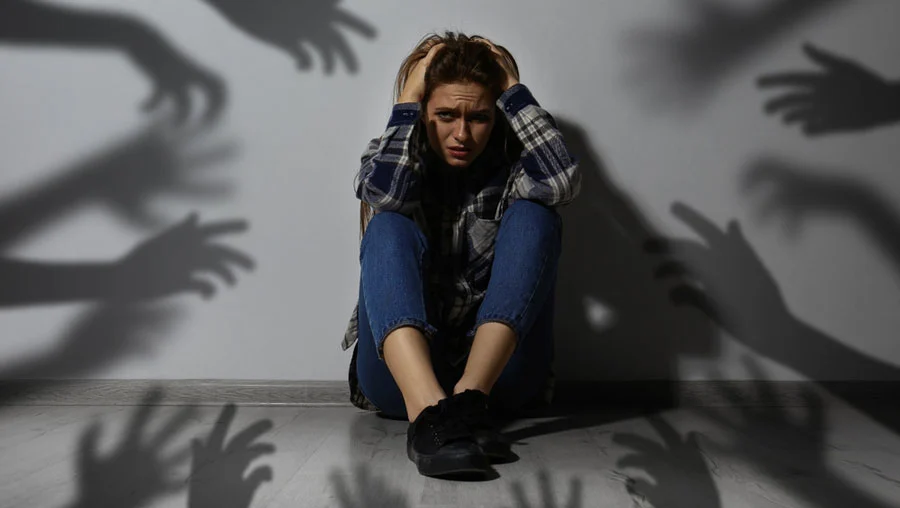A Deep Look into the Mental Health Risks of Hallucinogens
It is a turning point in our culture: psychedelic research is well underway with new hallucinogens being legalized all the time. At the moment, they are poised to play a critical role in mental health treatment, but that doesn’t mean that they come without risk.
Let’s get to the meat of the matter: can psychedelics cause psychosis and what risks do hallucinogens pose? If this is the question on your mind, you have found the right resource!
Catalina Behavioral Health can help you make important decisions regarding psychedelic-assisted therapy. We treat mental health conditions of all kinds with a range of services from inpatient to an intensive outpatient program.
Keep reading to learn more about psychedelics and psychosis, and if you or a loved one are struggling, remember you can always reach out to our enrollment team to learn more about our support programs!
Confidential Mental Health Assessment
The Link Between Psychedelic Research and Psychosis
Whether you are taking psilocybin or LSD, psychosis should be a primary concern that is addressed by your provider before treatment. The data suggest that those who are prone to psychotic disorders may have a greater risk of experiencing psychosis in the aftermath of medication being administered.
The good news is that if you take psychedelics and experience psychosis, this and many other adverse mental health outcomes are often short-lived. After the drug leaves your system, psychosis research demonstrates that there are few instances of continued symptoms.
For the most part, the early stages of research into psychedelics and psychosis are showing promise for the treatment of mental health problems such as anxiety disorders, depression and mood disorders, and post-traumatic stress disorder (PTSD).
The adverse effects of hallucinogens are minimal and there is little research to indicate that they are addictive. This psychiatric research should be considered when weighing whether to turn to these drugs for help with your mental health.
How Hallucinogens Impact the Brain

If you’re curious how hallucinogens impact the brain and their potential to trigger a psychotic disorder, it is important to understand the way these drugs work in the brain. Psychosis and hallucinogens have vastly different effects on the brain, neurotransmitters, and the outcome.
In psychosis, dopamine and glutamate are the two chemicals responsible for schizophrenia symptoms. However, these chemicals are very different from what psychedelic therapy aims to stimulate. Instead, they impact the serotonin receptors in the brain which has a different effect than psychosis.
It’s important to note that both psychosis and psychedelics do have an important link though: they both suppress the Default Mode Network. Research-related issues argue that this allows people to focus on a range of external stimuli over their internal perceptions.
Another key aspect of reviewing the research on psychedelics is that they activate the sensory aspects of the brain. This is why so many people feel an overwhelming significance of their senses, though it is vastly different from a model psychosis.
Defining Psychosis and the Connection with Hallucinogens
Of course, defining psychosis can illuminate whether hallucinogens are likely to trigger this type of harm in research participants. Psychosis could mean that you experience any type of perceived alteration to reality. The after-effects may mirror psychosis, especially if diagnosed with rare hallucinogen persisting perception disorder.
While this is an important component of psychotic disorders, there is a significant difference in how LSD, MDMA, and psilocybin impact the brain compared to psychosis. Keep in mind that symptoms of psychosis triggered by drug use recede once the drug is out of the system.
In other words, it may cause short-term psychosis, as is the case with cannabis withdrawal psychosis, but it doesn’t typically cause long-lasting psychotic disorders.
One significant difference between psychosis and the effects of hallucinogens is that people taking the drugs often know that what they are seeing and experiencing isn’t real. They aren’t all-consuming and most people don’t fall victim to thinking that this is reality. In other words, they don’t give into an illusion presented by the drugs.
This is very different from psychosis where people can’t tell the difference between reality and their hallucinations.
The Most Common Symptoms of Substance-Induced Psychosis

While this psychological phenomena is relatively rare according to the definition of psychosis above, there are some parameters for when someone experiences substance-induced psychosis. Knowing what could be possible can help you make the important decision about whether this treatment is the right move for you.
The DSM (the book used to diagnose and treat mental disorders) lists the criteria for substance-induced psychosis as:
- Delusional thinking or hallucinations
- Symptoms develop after drug use or during withdrawal
- No history of a psychotic disorder
- Significant distress or impairment from symptoms
It is this last point that often sets psychotic disorders apart from psychedelic-induced hallucinations. Many people who experience the symptoms of schizophrenia are very distressed by the nature of the thoughts and experiences of psychosis. Those who take LSD or psilocybin are notably less distressed over their experiences.
The symptoms of psychosis usually last a few hours until the substance is out of your system whereas psychotic disorders tend to be longer lasting. Psychosis is also often accompanied by a mood issue where those who take hallucinogens experience heightened and mostly positive emotions.
Get Effective Trauma Treatment Options
Lysergic Acid Diethylamide (LSD) and Psychosis
One of the most important connections in research is the effects of a trip on lysergic acid diethylamide, better known as LSD. LSD is now approved by the FDA, but that doesn’t necessarily mean that everyone should experiment with this controlled substance, even in a clinical setting.
If you have a bad trip on LSD, psychosis is one of the side effects. This experience could be caused by an impure drug, particularly prominent if you have experimented with street drugs rather than the purer forms available in a doctor’s office. Even with a pure drug, some people are at greater risk of psychosis or nervous breakdown than others.
For example, anyone who has ever been diagnosed with a psychotic disorder should reconsider their use of LSD. Existing diagnoses and a history of substance abuse should contraindicate the use of any hallucinogenic drugs in a comprehensive treatment plan.
Psilocybin-Assisted Therapy and Psychosis
More and more states are now legalizing psilocybin for the treatment of depression and post-traumatic stress disorder. Once this drug is approved for the masses, it’s important to understand whether it will pose an increased risk of psychotic disorders.
In general, “magic mushrooms” are considered relatively safe, but that doesn’t mean they are a great fit for everyone.
Research studies indicate that there is an extremely low risk of psychosis with these mushrooms. Out of more than 1,000 participants who self-reported psychedelic usage, researchers found that there was no significant link between psychedelics and psychosis.
This makes them safe for treatment in a clinical setting in an area that has legalized magic mushrooms. It is not recommended that you attempt to produce your own psilocybin or buy it off the streets. This can have dangerous outcomes and results, so it is best to stick to clinical practices at all times for effective outcomes.
Other Risks of Psychedelic Drugs for Mental Health

According to the Substance Abuse and Mental Health Services Administration, 7.1 million people tried a hallucinogenic drug in the past year. Mental disorders like depression are thought to benefit from short-term treatments with psychedelics like psilocybin and ketamine.
Many are even approved by the FDA and are coming to doctor’s offices everywhere.
What should you know about the risks of psychedelic drugs and how they impact your mental health long-term?
New, Unstable Hallucinogens
While your doctor may prescribe you hallucinogens for the treatment of treatment-resistant depression and other conditions, it’s important to note that this should be handled in a clinical setting. This ensures that you receive a pure drug instead of a street drug that has been laced with other chemicals.
Some hallucinogens like psilocybin, MDMA, and LSD are already being legalized in individual states for medical use. However, if you turn to the street version of some of these newer, more unstable drugs, you may find that psychotic symptoms surface.
The risk for newer and less researched hallucinogens is that they can trigger a psychotic episode. This is particularly true for people who are already susceptible to psychotic symptoms, mania, and mental health issues such as bipolar disorder and schizophrenia.
Be aware of what you are taking and stick to proven psychedelics that are administered in a clinical setting.
The Risks of Hallucinogen Persisting Perception Disorder
There could be long-term consequences for experimenting with psychedelic drugs and that includes a unique issue: hallucinogen persisting perception disorder (HPPD). HPPD can potentially be mistaken for psychotic symptoms, so it’s crucial to understand the difference.
This disorder is recognized in the Diagnostic and Statistical Manual as a condition where people will experience visual perception issues in the aftermath of taking psychedelics, namely LSD. Many case studies have been done on medication-assisted treatment of HPPD, but no firm conclusions have been reached yet.
It’s important to note that HPPD is rare but serious, taking hold after even a single use of psychedelics.
To combat these adverse mental health outcomes, medication-assisted therapy might be the first and most significant intervention. Talk with your team at Catalina Behavioral Health to determine how you can benefit from our experience and evidence-based medicine.
Treating Hallucinogen-Induced Psychosis

If you do fall into the handful of people who experienced hallucinogen-induced psychosis, what should you know about the treatment of this condition?
Fortunately, there isn’t much you will need to do to seek help for this type of psychosis. It’s best to be under the care of a medical team so that you’re in a safe environment while detoxing. We may be able to make you more comfortable and calmer with medication-assisted treatment.
The important thing is simply to let the drug run its course. Once it is absorbed and makes its way out of your system hours or days later, you should no longer deal with long-term psychosis and mental health issues.
Up To 100% of Rehab Costs Covered By Insurance
Get Help for Psychosis and Mental Health at Catalina
When you feel ready to get to the bottom of your mental health issues, you need a treatment center that can cater to your needs. Catalina Behavioral Health can accommodate a range of services and medication-assisted treatments to help you avoid severe physical harm.
Whether you are looking at inpatient care or intensive outpatient, we are here to help. Contact our warm and welcoming admissions staff today to learn more about how we can help with mood and other mental health conditions that jeopardize your quality of life!
References
- Krebs, T. S., & Johansen, P. Ø. (2013). Psychedelics and mental health: a population study. PloS one, 8(8), e63972.
- Johansen, P. Ø., & Krebs, T. S. (2015). Psychedelics not linked to mental health problems or suicidal behavior: a population study. Journal of psychopharmacology (Oxford, England), 29(3), 270–279.
- Howes, O., McCutcheon, R., & Stone, J. (2015). Glutamate and dopamine in schizophrenia: an update for the 21st century. Journal of psychopharmacology (Oxford, England), 29(2), 97–115.
- Leptourgos, P., Fortier-Davy, M., Carhart-Harris, R., Corlett, P. R., Dupuis, D., Halberstadt, A. L., Kometer, M., Kozakova, E., LarØi, F., Noorani, T. N., Preller, K. H., Waters, F., Zaytseva, Y., & Jardri, R. (2020). Hallucinations Under Psychedelics and in the Schizophrenia Spectrum: An Interdisciplinary and Multiscale Comparison. Schizophrenia bulletin, 46(6), 1396–1408.
- Vardy, M. M., & Kay, S. R. (1983). LSD psychosis or LSD-induced schizophrenia? A multimethod inquiry. Archives of general psychiatry, 40(8), 877–883.
- Lebedev, A. V., Acar, K., Garzón, B., Almeida, R., Råback, J., Åberg, A., Martinsson, S., Olsson, A., Louzolo, A., Pärnamets, P., Lövden, M., Atlas, L., Ingvar, M., & Petrovic, P. (2021). Psychedelic drug use and schizotypy in young adults. Scientific reports, 11(1), 15058.
- Substance Abuse and Mental Health Services Administration. (n.d.-a). Results from the 2020 national survey on drug use and health.
- Hermle, L., Simon, M., Ruchsow, M., & Geppert, M. (2012). Hallucinogen-persisting perception disorder. Therapeutic advances in psychopharmacology, 2(5), 199–205.
- Martinotti, G., Santacroce, R., Pettorruso, M., Montemitro, C., Spano, M. C., Lorusso, M., di Giannantonio, M., & Lerner, A. G. (2018). Hallucinogen Persisting Perception Disorder: Etiology, Clinical Features, and Therapeutic Perspectives. Brain sciences, 8(3), 47.




